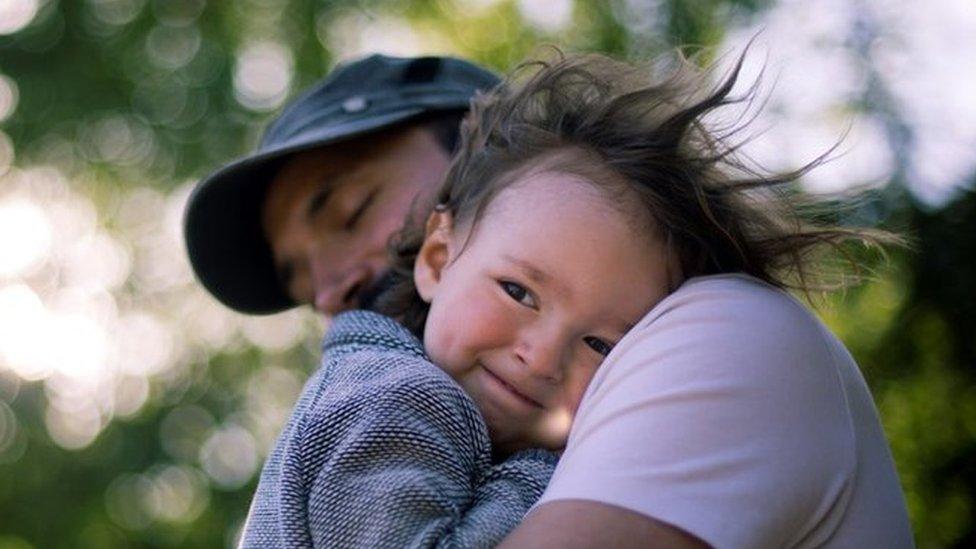Denbighshire: Disabled girl unable to play in parks with friends
- Published
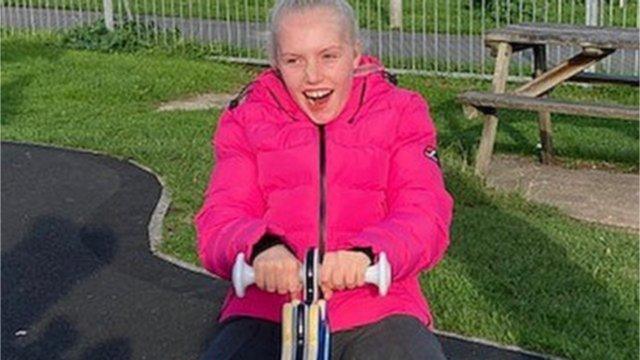
Twelve year old Izzy's rare genetic condition means she doesn't have good coordination and balance
A girl with a rare genetic condition can't play in her local parks because they are not accessible to her.
Izzy, 12, from St Asaph, Denbighshire, has sensory challenges and doesn't have good balance and coordination.
Her mum Leanne Groves, along with other parents, looked at 36 Denbighshire parks, and said none of them were fully inclusive or accessible.
Denbighshire County Council said a review is underway and it will take the parents' report into account.
Ms Groves said aside from one accessible swing in her local park there's little else suitable for Izzy, and the park isn't accessible for Izzy's friends who use wheelchairs.
"She loves to play with others...as she's grown up that's become more and more restricted," she said.
"I'd like to see her be able to play with her friends."
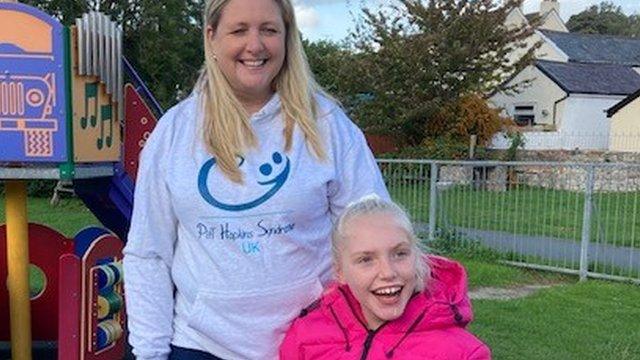
Leanne Groves said she just wants to see Izzy be happy and be able to play with her friends
"She needs areas easily accessible, sometimes with not a lot of steps, things that are easy to get on and off," added Ms Groves.
"And sometimes she can be quite overwhelmed, if there's too many people around, she needs spaces she can go and take herself and do a bit of self-play, and calm herself down."
Yvonne Brookes, from the group Stand North Wales, which represents people with additional needs and disabilities, said the report highlights a number of problems.
"No accessible toilets close by, no parking for disabled people, the equipment is old or dangerous," said Ms Brookes.
"If children are visually impaired or blind, there's no sound equipment, no equipment if children have complex needs, no sensory equipment."
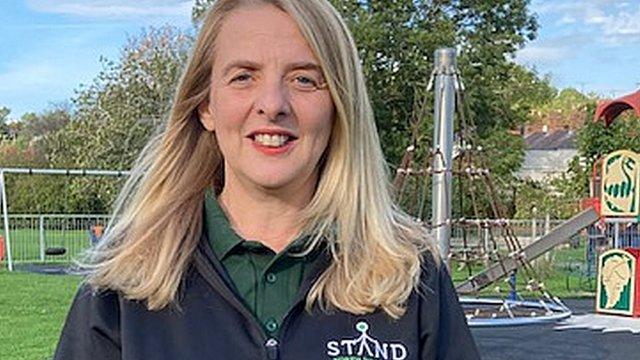
Yvonne Brookes said inaccessible parks is a problem across Wales
The report said less than half of the play spaces audited had safe crossing points with dropped kerbs nearby.
It found that almost 20% of the sites had either no footpaths, or alternatives to surfaces like gravel or woodchip, making it inaccessible for people using mobility aids.
Ms Brookes said the lack of inclusive playgrounds is a Wales-wide issue.
Stand North Wales want the Welsh government to help local authorities invest more into play spaces across the country.
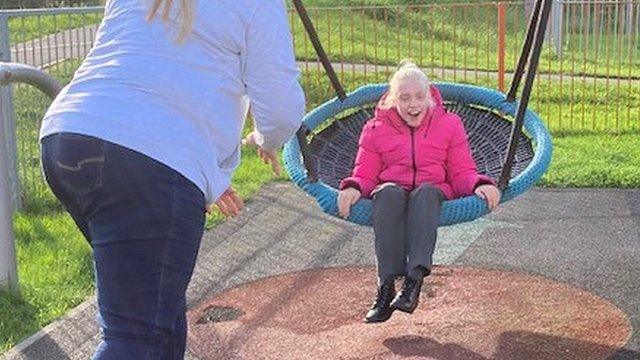
Izzy only has one accessible swing in her local park
'Disabled children on the side lines'
The experiences of Denbighshire parents echo a national campaign by disability equality charity Scope which said about half of families with disabled children can't use their local playgrounds.
Scope's campaign manager Jessica Leigh said playgrounds should be an "essential" part of childhood for everyone.
"In some cases, we're seeing is children can't even play with their siblings.
"We're hearing from families where a non-disabled child will be able to play in the playground, and that disabled sibling is having to sit at the side-lines and potentially just stare at an iPad."
Back in St. Asaph, Ms Groves said she would just like Izzy, and other children with disabilities to be able to get the most they can out of a visit to a local park.
"All we want is for her to be happy...and feel part of a community."
What needs to change?
Alex Osborne, from Disability Wales, said councils need to consult with disabled members of the community to know what changes need to be made.
"We think it's so important that all kids can play, its such an important part of growing up. It is so sad when a kid has to be excluded because the place isn't accessible," she said.
Speaking on Radio Wales Breakfast, she highlighted issues such as wood chipping, inaccessible pathways, and tight spaces between equipment as key issues.
"It's always about engaging with disabled people, because then we can tell the people building the playground what's accessible, and what's not.
"There's very rarely any equipment for a child with a mobility impairment, it very often relies on a child being able to climb a rope and these sorts of things.
"We think there just needs to be more inclusive equipment, instead of just the whole environment, the actual equipment needs to be altered so disabled children can use it also."
A Welsh government spokesperson said it was "committed to improving opportunities for all children and young people to play."
"This is why every local authority in Wales has a duty under statutory guidance to secure sufficient play opportunities for all children, taking account of their needs."
- Published12 May 2022
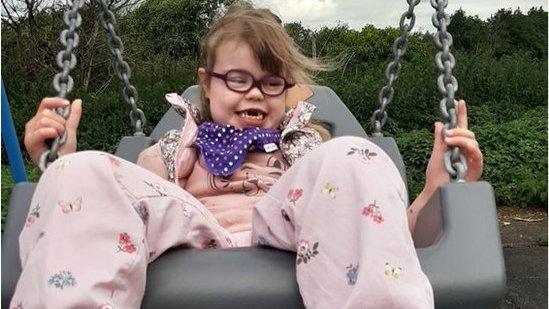
- Published21 July 2021
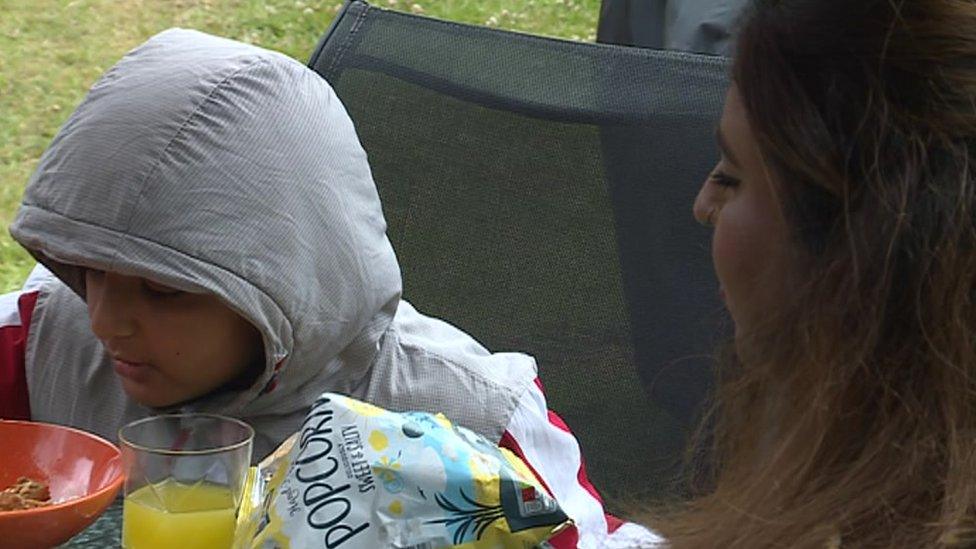
- Published29 November 2021
